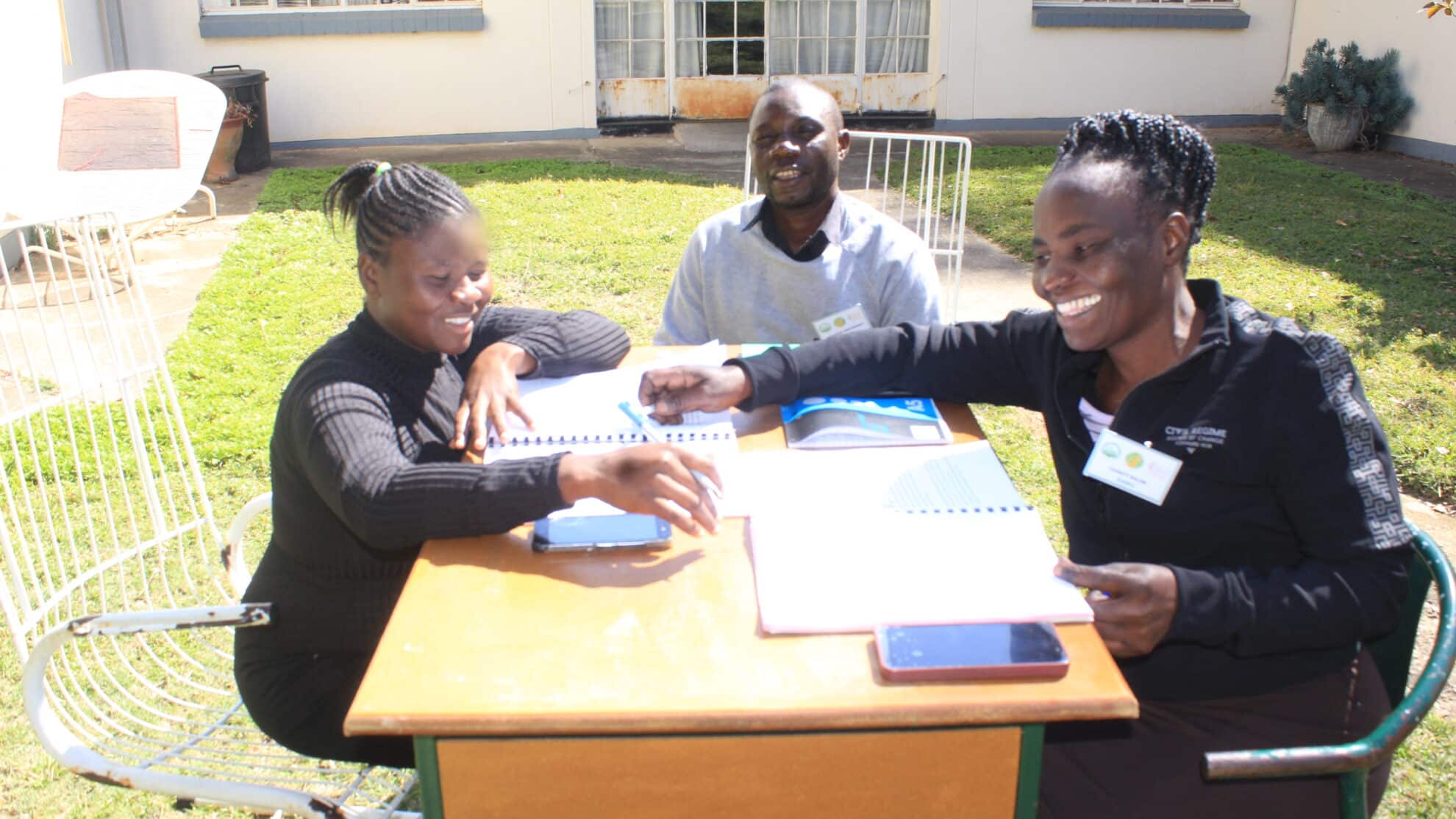WIEGO’s Law Programme has been working on Legal Empowerment for Domestic Workers with the International Domestic Workers Federation (IDWF), four of its African affiliates and other allies for the past three years. Teresa Marchiori, WIEGO’s Access to Justice Specialist, explains why this work is essential.
How did domestic workers’ need for legal empowerment become apparent?
Domestic workers WIEGO has worked with have shared many stories that reveal the impacts of having little legal knowledge and low self-awareness as workers, coupled with working in isolation in their employers’ homes.
A 50-year-old domestic worker in Harare, Zimbabwe, asked: “I have been working 12 hours a day and haven’t been given vacation leave in years. Is that right?”
Another domestic worker, who did all the household work including child care in a relative’s home in return for a room and meals, said that she had not considered herself to be a worker. It was only when the domestic worker next door introduced herself and asked her when she had started working that she realized she too was a domestic worker.
Well aware of all this, the IDWF decided that domestic workers must know, use and shape the law – and the seeds for a new training project were sown.
What is the team’s approach to legal empowerment?
Without legal knowledge, domestic workers often do not know that their experiences are not just unfair, they are unlawful.
We see critical legal empowerment as a process in which domestic workers strengthen their own identity as holders of labour rights. Through the training and its focus on rights-based advocacy, we aim to enable domestic workers to know, use and shape the law to improve their living and working conditions.
After attending training workshops in Zimbabwe, one participant said, “I never knew that there was a law that protected me as a domestic worker”, and another reflected that, “Now that I see myself in the law, I feel like I am someone.”
But the Law Programme takes a critical approach to legal empowerment. Our approach aims to equip domestic workers, not just with an understanding of the law, but also of the interests it serves and the power dynamics it reflects. For domestic workers to see the possibility of change in the law, they first need to recognize that a legal system that does not uphold their rights is the result of structural inequality and political game playing. We ask the question “is what is legal always just?” and work with participants to see that if the law – or its implementation – does not work for them, they can harness their collective power to change things.
What do you mean about the law reflecting power dynamics?
On the surface, laws are the result of institutional processes expressing “visible power”, the power of members of parliament, for example. But other forms of power also shape laws, such as hidden power where social actors set unwritten rules that inform decision making. And there are other, more insidious, forms of power such as the social and cultural beliefs that shape the way people define what is acceptable. This contributes to one’s sense of inferiority or superiority and sets limits on perceived opportunities for change.
The unique challenges domestic workers face stem from dominant social values and intersect with the identities of domestic workers, who are mostly women. The patriarchal system devalues domestic work as “women’s work” or “household chores”, which blurs the line between paid labour and unpaid family contributions. This point is illustrated by employers of domestic workers calling their employee “auntie” or “sister” – a common habit that was raised by domestic worker union representatives during the training. They noted that this familiarity weakens workers’ identity and collective consciousness.
The legal empowerment training has a strong focus on invisible and hidden power arrangements, with the ultimate aim of enabling domestic workers to take action to acquire institutional – visible –power.
How can domestic workers – who mostly work in isolation – find support?
Because domestic work takes place within private homes, it is difficult for domestic workers to develop a collective identity as workers and to find support to challenge violations of their rights. They often find themselves negotiating with their employers alone, which puts them at risk even of losing their jobs.
Our legal empowerment work is done with and through domestic worker unions, which provide a structured space devoted to advancing workers’ interests and serve as a powerful amplifier where workers can grow their power. A major focus is strengthening the unions – so that domestic workers can more easily access organizations for support with planning and conducting negotiations with their employers.
As well as leveraging the unions’ experience with negotiations, we work to increase their outreach capacity so that the knowledge generated through the project reaches large numbers of domestic workers. We emphasize the practical implications of a legal empowerment approach, which demands that participants share the knowledge and skills they acquire.
